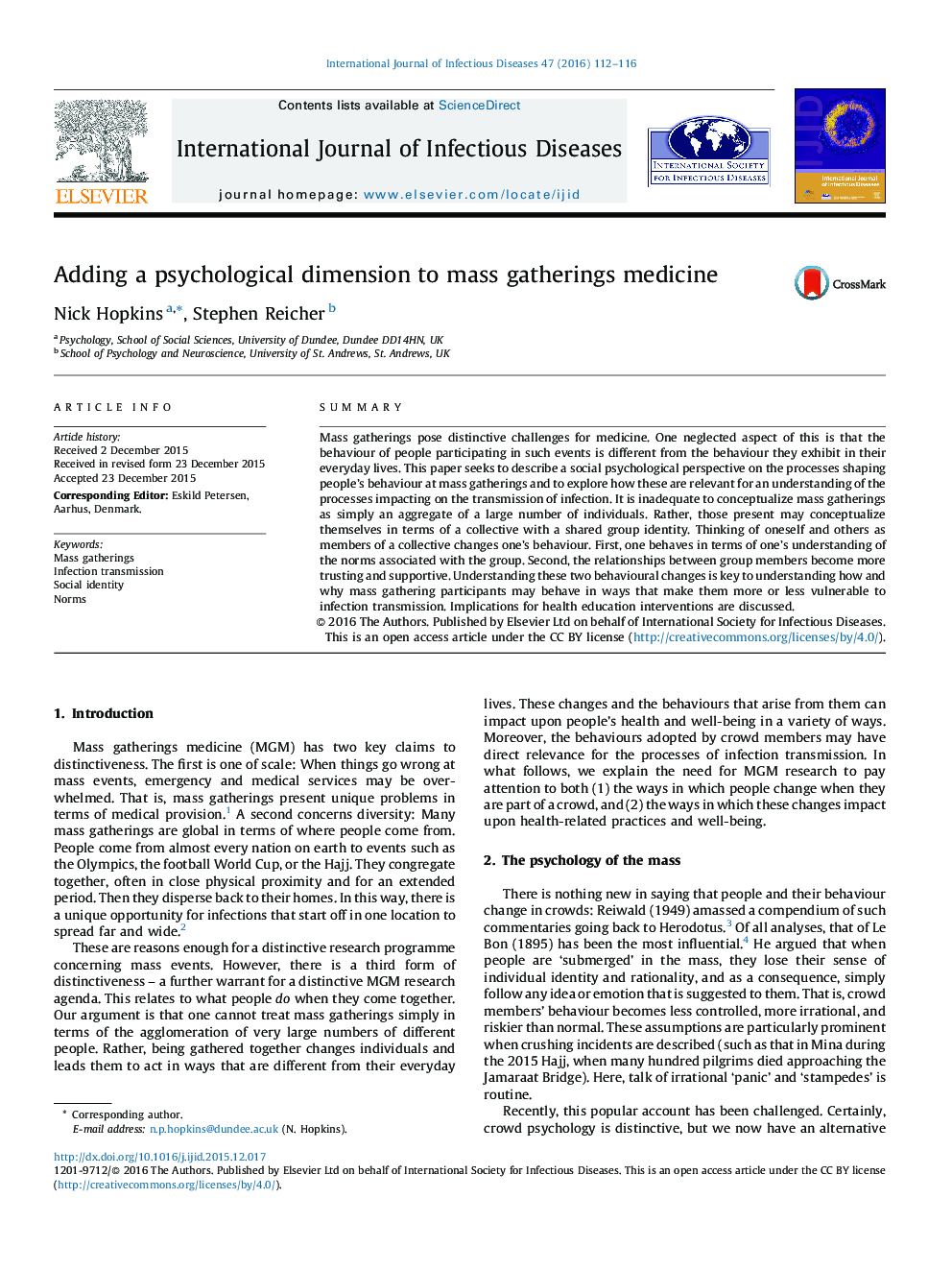| Article ID | Journal | Published Year | Pages | File Type |
|---|---|---|---|---|
| 3361794 | International Journal of Infectious Diseases | 2016 | 5 Pages |
•Crowd members’ behaviour differs from the same people's everyday behaviour.•Crowd behaviour involves conformity to shared norms and closer social relations.•These norms and more intimate relations impact the risk of infection transmission.•Interventions to mitigate risk must work with these crowd psychology processes.
SummaryMass gatherings pose distinctive challenges for medicine. One neglected aspect of this is that the behaviour of people participating in such events is different from the behaviour they exhibit in their everyday lives. This paper seeks to describe a social psychological perspective on the processes shaping people's behaviour at mass gatherings and to explore how these are relevant for an understanding of the processes impacting on the transmission of infection. It is inadequate to conceptualize mass gatherings as simply an aggregate of a large number of individuals. Rather, those present may conceptualize themselves in terms of a collective with a shared group identity. Thinking of oneself and others as members of a collective changes one's behaviour. First, one behaves in terms of one's understanding of the norms associated with the group. Second, the relationships between group members become more trusting and supportive. Understanding these two behavioural changes is key to understanding how and why mass gathering participants may behave in ways that make them more or less vulnerable to infection transmission. Implications for health education interventions are discussed.
